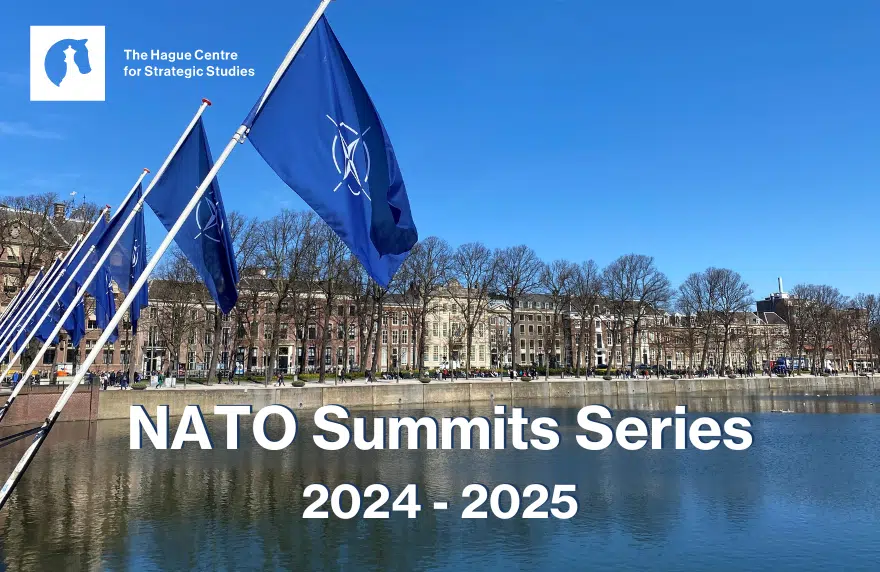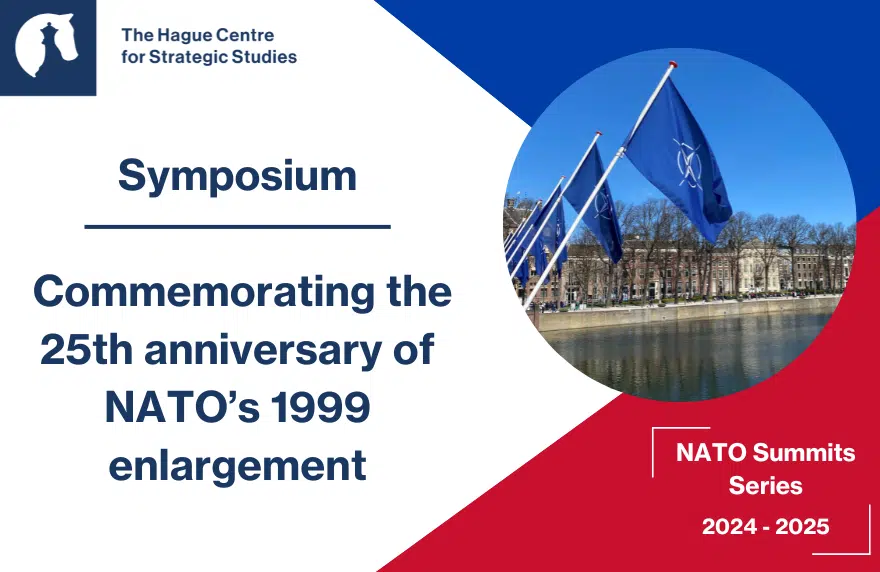NATO member states have found their new secretary-general: an ideologically illusive, pragmatic dealmaker, but not exactly known as a hardcore Atlantist – is Mark Rutte the right man for the alliance? “The risk is that within NATO there is an underestimation of how much work it is to keep everyone on board,” HCSS senior analyst Paul van Hooft tells Dieuwertje Kuijpers, for an in-depth analysis in Follow The Money.
Along which paths Rutte should lead the alliance, is not easy for anyone to summarise. Lord Ismay, NATO’s first secretary-general, described the alliance as a means “to keep the Russians out, Americans in and Germans down”.
Even 75 years later, Paul van Hooft, senior analyst at The Hague Centre for Security Studies (HCSS), told FTM that those points remain salient, if only as metaphor: “military defence, a role for the United States in Europe, but also solving internal European problems.”
The internal European problem at the time was how to organise European reconstruction without Germany leveraging its substantial heavy industry to re-arm. Anno 2024, it has again become unclear exactly what role the United States wants to play in Europe. At the same time, the cards are shuffled very differently. Fault lines today run not just between east and west, as in the Cold War, but north and south, Van Hooft said: “The risk is that within NATO there is an underestimation of how much work it is to keep everyone on board.”
America has grumbled for decades about European countries not pulling their weight financially while benefiting from US largesse and its promise to come to their aid in the event of a Russian attack. But the way this discontent is expressed changed with Trump in the White House. Democratic President Biden was “shocked” by these remarks, labelling them “un-American” and adding that the commitment to NATO is “sacred”.
The manner of making the point can be argued, but in any case the moment that European allies must slowly begin to hold up their own trousers has arrived – especially now that America has turned its strategic gaze more towards Asia.
“The good news is that in NATO itself, the focus is back on Europe, on the classic tasks,” HCSS’s Van Hooft said. “Yet you do see in the latest strategic concept that there is also talk of China and the Indo-Pacific. This splitting of attention and thus resources is not necessarily helpful for NATO’s core mission.” Not just getting all boats rowing in the same direction, but simultaneously ensuring that NATO as a whole stays on track.
Read the full article by Dieuwertje Kuijpers at investigative journalism platform Follow The Money.







